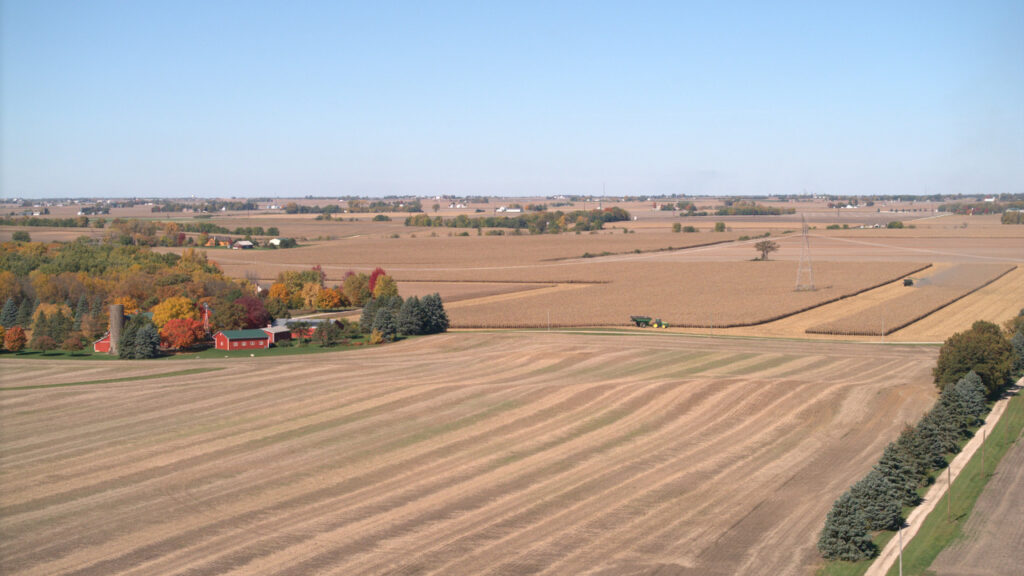By Kanecountyconnects.com
Farmland is intertwined with the agricultural heritage and economic vitality of Kane County and for that reason, County leaders have made preserving it a priority.
Kane County has a long history of public policy efforts focused on its unique agricultural and rural landscape, staring in 1991 with an ordinance protecting farms from nuisance lawsuits. The County went on to develop a Stormwater Ordinance to protect and keep farmland productive in 2002 and establish and fund an Agricultural Conservation Easement & Farmland Protection Ordinance in 2001. There is also a Farmland Drainage Assistance Program to assist farmers in maintaining productive soil, and the Growing in Kane Ordinance to encourage and prioritize the production of fruits, vegetables, meats and dairy.
Since the early 2000s, Kane County has made significant progress in preserving its farmland under the Farmland Protection Ordinance. The County was the first in the state with this type of mechanism, allowing landowners to permanently protect their farmland. The goal is to create a balance between urban and rural development.
The County Board recently added six new farms to the list, bringing the total to 7,000 acres of protected farmland.
Since its inception, the ordinance has protected over 40 working farms, and the newly approved farmland marks a significant milestone in the County’s efforts to conserve its rural traditions.
The Farmland Protection Ordinance is voluntary and highlights how local individuals can act to promote sustainable agriculture and protect natural resources.
Amy Schoger represent the “next generation” of family farmers in Kane County, growing corn and soybeans on land in Big Rock Township. She and her husband are following the in the footsteps of their parents and grandparents who have also put land into the Kane County Farmland Preservation Program.
“This is our way of life; it’s how we were raised, and it’s all we know,” said Schoger. “I would never want to see our farmland turned into a store, gas station or warehouse – these fields hold cherished memories and are part of our farming history,” she added. “We want to continue to see cornfields for generations to come. By preserving our farmland, we have done that. It was an easy decision for us.”
The six new farms now protected under the ordinance include:
- Schoger Ag, LLC in Big Rock Township and Kaneville Township
- Carl and Amy Schoger Farm in Big Rock Township
- Souders Farm in Kaneville Township
- Maddox Farm in Virgil Township
- Hermann Farm in Big Rock Township
- Lucas Strom / Geneva Bank and Trust Farm in Campton Township
The six newly approved farms are now on the waiting list for application to federal match funding through the Natural Resources Conservation Service farmland protection programs.
Currently there are over 600 family farms in Kane County and more than 1,000 family farmers supporting 14,000 local jobs and an estimated $1.4 billion in total sales.
The benefit of protecting working farms include reducing greenhouse gases, suburban sprawl and increasing the tracts of uninterrupted farmland.
Agriculture and open space occupy nearly one-half of the land base of Kane County, leading Illinois in the number of nurseries, greenhouses, floriculture and sod production.
New livestock development also accounts for additional jobs creating additional economic growth within the County.










